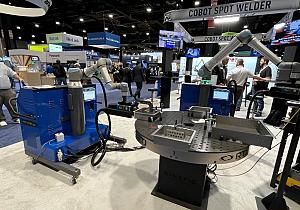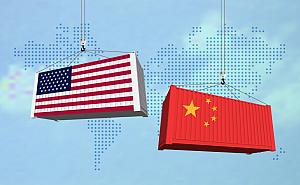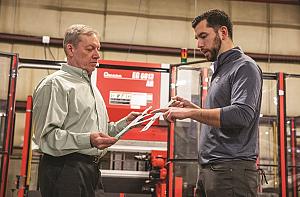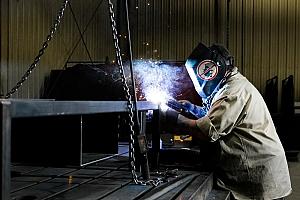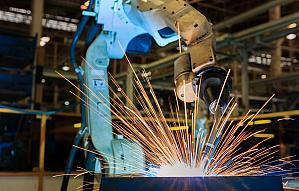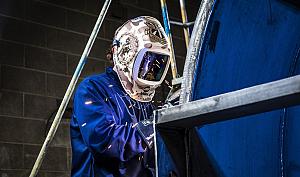President
- FMA
- The Fabricator
- FABTECH
- Canadian Metalworking
Categories
- Additive Manufacturing
- Aluminum Welding
- Arc Welding
- Assembly and Joining
- Automation and Robotics
- Bending and Forming
- Consumables
- Cutting and Weld Prep
- Electric Vehicles
- En Español
- Finishing
- Hydroforming
- Laser Cutting
- Laser Welding
- Machining
- Manufacturing Software
- Materials Handling
- Metals/Materials
- Oxyfuel Cutting
- Plasma Cutting
- Power Tools
- Punching and Other Holemaking
- Roll Forming
- Safety
- Sawing
- Shearing
- Shop Management
- Testing and Measuring
- Tube and Pipe Fabrication
- Tube and Pipe Production
- Waterjet Cutting
Industry Directory
Webcasts
Podcasts
FAB 40
Advertise
Subscribe
Account Login
Search
Finishing the race strong
Business lessons from the Tour de France
- By Bill Frahm
- August 22, 2018
- Article
- Shop Management
Successful business managers understand that business is an endurance sport, not a sprint. The recently completed Tour de France provides a good example of how teamwork and competitive cooperation can benefit your company and its supply chain.
The race was both physically and mentally demanding. It included 3,351 km of riding, mountain climbs, sprints, and time trials. Business managers can learn some important tactics from inside the peloton.
If you have ever watched a bicycle race, you may have noticed that there is much more teamwork involved than you would normally expect. Teams compete against each other. Riders compete with their own teammates for leadership positions. Beyond the competition, though, riders know that their success depends on the willingness and ability of teammates and competitors to support them.
By working together, riders can conserve 20 to 30 percent of their energy by drafting the leader. Leaders rotate in and out of the lead position to avoid tiring. The lead rider is said to be “pulling,” because he is riding with total wind resistance, while those following benefit from his efforts.
Within a team, the leader is the rider with the greatest chance of winning the race. Teammates out of the lead are called domestiques, because their job is to support their leader by helping him conserve his energy for when he really needs it during a sprint or mountain climb.
In many situations, business relations also can benefit from using teamwork to support competitiveness. Each leader has his or her unique set of strengths and weaknesses. Their companies also excel in some activities, are average in others, and weak in some. Business growth often requires adopting new materials and technologies, which necessitates pushing the comfort envelope and confronting weaknesses.
Some are equipped to lead because of their experience with materials, processes, or technology. These leaders can raise the competence of an industry by supporting those with less experience. Does this sacrifice competitive advantage? Done without proper planning, it can. You need a strategy that supports others while protecting your secrets and maintaining your competitiveness. You have to do your homework. You must understand your own competitive advantages, while also understanding the capabilities and strengths of your competitors. Given this understanding, you can confidently partner and coach without sacrificing your position in the market.
Also, this competitive intelligence provides insight into your company’s market strengths and opens opportunities to partner on particularly complex projects.
Within an industry primarily served by smaller suppliers, teamwork can go a long way toward supporting individual success and better supply chain results. While companies understand they are competing with each other, they also must understand that they can achieve greater success by recognizing and supporting leaders and sharing leadership knowledge.
About the Author

Bill Frahm
P.O. Box 71191
Rochester Hills, MI 48307
248-506-5873
subscribe now

The Fabricator is North America's leading magazine for the metal forming and fabricating industry. The magazine delivers the news, technical articles, and case histories that enable fabricators to do their jobs more efficiently. The Fabricator has served the industry since 1970.
start your free subscription- Stay connected from anywhere

Easily access valuable industry resources now with full access to the digital edition of The Fabricator.

Easily access valuable industry resources now with full access to the digital edition of The Welder.

Easily access valuable industry resources now with full access to the digital edition of The Tube and Pipe Journal.
- Podcasting
- Podcast:
- The Fabricator Podcast
- Published:
- 05/07/2024
- Running Time:
- 67:38
Patrick Brunken, VP of Addison Machine Engineering, joins The Fabricator Podcast to talk about the tube and pipe...
- Trending Articles
White House considers China tariff increases on materials

A deep dive into a bleeding-edge automation strategy in metal fabrication

Majestic Steel Arkansas fully operational
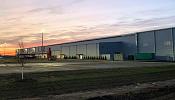
A visit to Automate 2024 reveals the future might be now

Rivian to expand Illinois facility to manufacture midsized SUV

- Industry Events
Laser Welding Certificate Course
- May 7 - August 6, 2024
- Farmington Hills, IL
World-Class Roll Forming Workshop
- June 5 - 6, 2024
- Louisville, KY
Advanced Laser Application Workshop
- June 25 - 27, 2024
- Novi, MI
Precision Press Brake Certificate Course
- July 31 - August 1, 2024
- Elgin,

